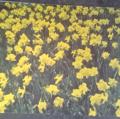The travellers' voices shine through
4 steloj
I feel very privileged to be able to read such ancient texts as Ahmad Ibn Fadlan's travel memoir and the other writings that make up this volume. Even in translation - and I think Lunde and Stone have done a brilliant job here - the Arabic travellers' voices shine through and it is fascinating to think that Ibn Fadlan's account was written eleven centuries ago! I was already aware of Danish Vikings invading and settling in the UK and Ireland, but didn't know they had wrought havoc right on down to what is now Portugal and Spain, or that their Swedish compatriots had journeyed east and south into Jewish and Islamic lands. Known to Arabic writers as the 'Rus', these Vikings (who would become Russians) displayed wonderfully outrageous and uncouth behaviour in the eyes of the pious and fastidious Muslim envoy. I could almost imagine Ibn Fadlan's raised eyebrows, but …
I feel very privileged to be able to read such ancient texts as Ahmad Ibn Fadlan's travel memoir and the other writings that make up this volume. Even in translation - and I think Lunde and Stone have done a brilliant job here - the Arabic travellers' voices shine through and it is fascinating to think that Ibn Fadlan's account was written eleven centuries ago! I was already aware of Danish Vikings invading and settling in the UK and Ireland, but didn't know they had wrought havoc right on down to what is now Portugal and Spain, or that their Swedish compatriots had journeyed east and south into Jewish and Islamic lands. Known to Arabic writers as the 'Rus', these Vikings (who would become Russians) displayed wonderfully outrageous and uncouth behaviour in the eyes of the pious and fastidious Muslim envoy. I could almost imagine Ibn Fadlan's raised eyebrows, but he strives to still record an unbiased and factual account of these strange northern warriors.
This Penguin edition would probably be best read as a paper book because its maps are only at the beginning - fine to keep a finger in the page of a paperback, but infuriating in an ebook! My geographical knowledge is well-known to be useless so I frequently struggled to remember where all the various kingdoms and empire boundaries were. As well as Ibn Fadlan's account, we also get to read an account written some two centuries later of similar travels by Abu Hamid al-Andalusi. The lands are much the same, but the ruling tribes and their religious beliefs have changed and this continues through the third section of short writings by a number of other travellers. I found the short accounts hard going by the end as there is extensive overlapping of observations and ideas with some writers 'quoting' (or copying!) their forerunners. Fact and folklore often blend too and there are hints of tall stories starting to come in - were the sled dogs really as big as donkeys?

